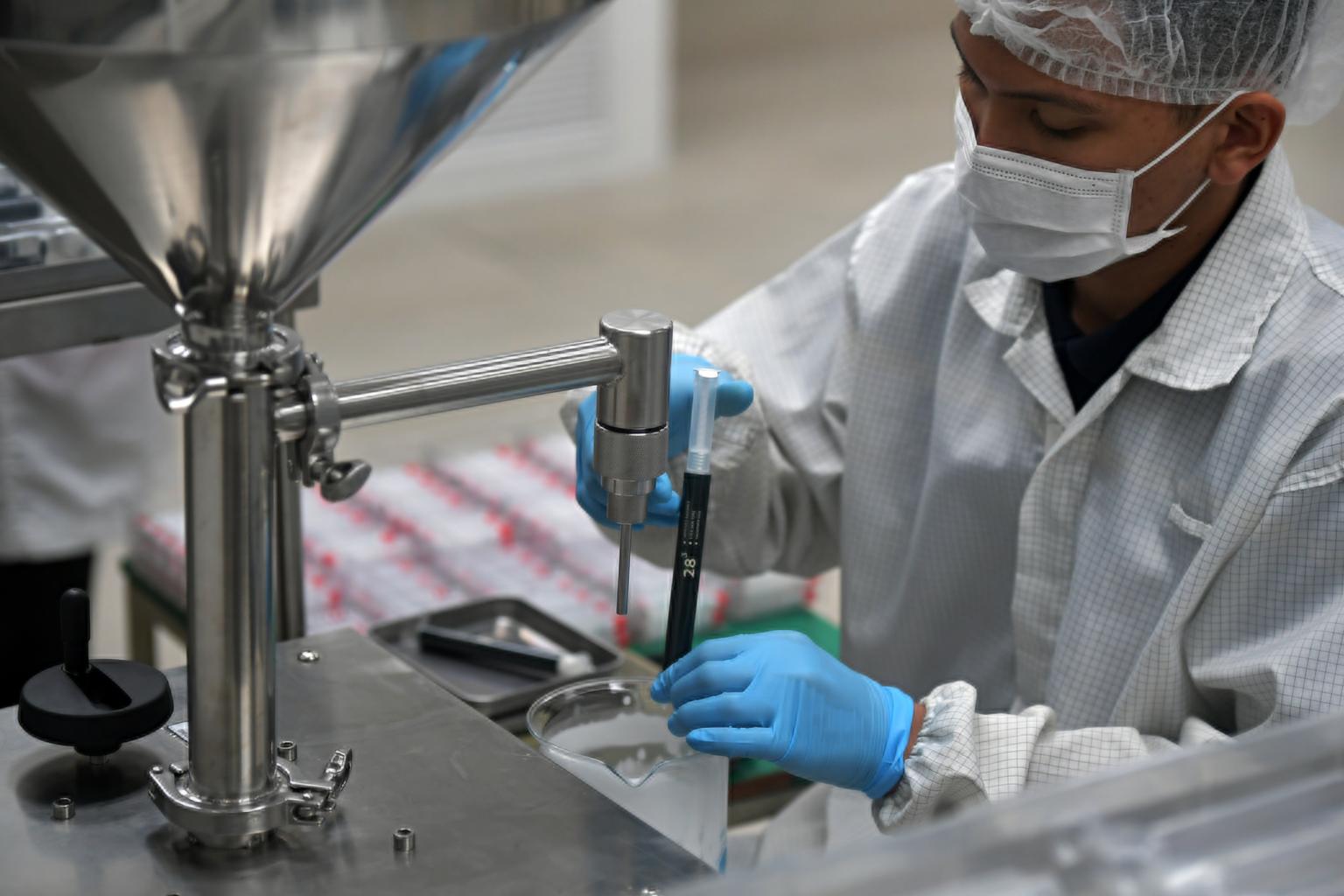Singapore factory activity expands in April at fastest pace since December 2018
Sign up now: Get ST's newsletters delivered to your inbox

The Singapore Purchasing Managers' Index rose for the 10th straight month, with expansion picking up by 0.1 points from March to 50.9.
ST PHOTO: KUA CHEE SIONG
SINGAPORE - Singapore saw its overall manufacturing activity expanding in April at the fastest pace in more than two years, aided mainly by gains in new orders, new exports, and employment.
However, analysts said uncertainty about the new variants of Covid-19 poses downside risks to the outlook.
The Singapore Purchasing Managers' Index (PMI) rose for the 10th straight month, with expansion picking up by 0.1 point from March to 50.9, according to data released on Monday (May 3).
This is the highest reading recorded since December 2018, when the PMI posted a reading of 51.1, said the Singapore Institute of Purchasing and Materials Management (SIPMM), which compiles the monthly PMI report.
A reading above 50 indicates expansion; one below indicates contraction.
Higher rates of expansion were also recorded for imports, input prices, and order backlog.
Ms Sophia Poh, SIPMM's vice-president for industry engagement and development, said despite the upsurge in new orders, supply disruptions remain a major concern for manufacturers.
"Several manufacturers from the process industries are concerned about a labour crunch as a result of the recent entry ban on workers from India," she said.
Last month, Singapore announced that all long-term pass holders and short-term visitors who have travelled to India within the last 14 days will not be allowed to enter or transit through the Republic.
The measure was taken after India suffered a massive secondary wave of infections from a new Covid-19 strain.
Ms Selena Ling, OCBC bank's chief economist and head of treasury research and strategy, said the entry ban is a setback for the reliant industries and may also prove to be a near-term drag on recovery.
"That said, Singapore policymakers have indicated that they're trying to source for alternative labour supply - for example, from China - as well as consider additional policy support for the affected industries," she added.
The PMI report shows that slower expansion rates were recorded in factory output and inventory, whereas the supplier deliveries posted a faster rate of contraction, with finished goods stock reverting to a contraction as well.
The electronics sector PMI also posted a marginal increase of 0.1 point from the previous month to post a faster rate of expansion at 50.7, helped by higher expansion rates for new orders, new exports, and employment.
This is the ninth month of expansion for the electronics sector.

Mr Barnabas Gan, an economist at UOB Group, said the continued expansion in Singapore's overall and electronics PMIs are supportive of its overall economic growth.
He said PMI gains are in tandem with the growth in industrial production that surged 7.6 per cent year-on-year in March 2021, underpinned by electronic output which expanded 33.7 per cent- the fastest growth in three months.
The electronics sector was also helped by faster expansion in imports, input prices, and order backlog. Order backlog recorded expansion for the 10th consecutive months, the PMI report showed.
Mr Gan said the higher order backlog suggests that additional resources may be needed in the year ahead to fulfil outstanding orders.
"Uncertainties surrounding Covid-19, given the introduction of new virulent variants in other parts of the world, may inject downside risks to our outlook should these factors be exacerbated," Mr Gan said.


